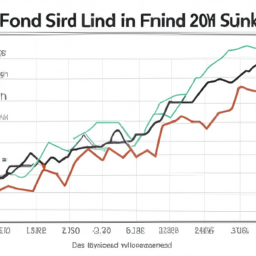An index fund is an investment fund – either a mutual fund or an exchange-traded fund (ETF) – that is based on a preset basket of stocks, bonds, or other securities. The aim of an index fund is to replicate the performance of a specific market index, such as the S&P 500 or the FTSE 100. By investing in an index fund, you can gain exposure to a diverse range of stocks or other assets without having to research and select individual securities.
Index funds have become increasingly popular over the past few years, and for good reason. They offer a number of benefits over other types of investment funds. One of the main advantages of index funds is their low fees. Because index funds are passively managed, they don't require as much oversight as actively managed funds, which means they can charge lower fees. This can be a huge benefit for investors, as it means more of their money is going towards their investments, rather than towards fees.
Another advantage of index funds is their performance. Research has shown that over the long term, index funds tend to outperform actively managed funds. This is largely due to their lower fees, which means more of the returns are going to the investor rather than to the fund manager. Index funds are also less likely to underperform, as they are not subject to the same risks associated with active management.
However, it's important to note that index funds do have some drawbacks. For one, they are not as flexible as actively managed funds. Because they are designed to track a specific index, they may not be able to take advantage of certain market opportunities. Additionally, because they are passive, they may not be able to adjust to changing market conditions as quickly as actively managed funds.
Research shows that index funds' popularity might actually reduce returns for investors over the long term. As more investors pour money into index funds, the stocks held by those funds become more expensive, which can lead to lower returns. This is known as the "index effect," and it's something that investors should be aware of when considering index fund investing.
Despite these drawbacks, index funds are still an excellent investment choice for many investors. A combination of low fees and hard-to-beat performance makes these index funds great core portfolio building blocks. They can provide diversification across multiple asset classes, and they are easy to buy and sell. Additionally, index funds are a great way to get exposure to specific sectors or regions, such as emerging markets or technology stocks.
When it comes to choosing an index fund, there are a few things to keep in mind. First, consider the index that the fund is tracking. Some indexes, such as the S&P 500, are more popular than others, but they may not be the best choice for every investor. Additionally, consider the fees associated with the fund. While index funds are generally low-cost, some funds may have higher fees than others.
Stock market indices such as the FTSE 100 of leading UK company shares, or the S&P 500 in the US, are a vital component of the investing world. By investing in an index fund that tracks one of these indices, you can gain exposure to a diverse range of stocks without having to research and select individual securities.
For investors looking for a more specialized index fund, there are also options available. For example, there are index funds that focus on specific sectors, such as technology, healthcare, or energy. There are also index funds that track specific regions or countries, such as emerging markets or Europe.
One potential drawback of index funds is that they may not provide the same level of excitement as individual stock picking. However, for investors who are looking for a low-maintenance, low-risk way to invest, index funds are an excellent choice.
In summary, index funds are an easy, low-fee way to invest. It might be the smartest and easiest investment you ever make. While they do have some drawbacks, their low fees and strong performance make them an excellent choice for many investors. Whether you're just starting out or you're a seasoned investor, index funds are worth considering as part of your investment portfolio.
Ticker: FTSE, S&P 500.
